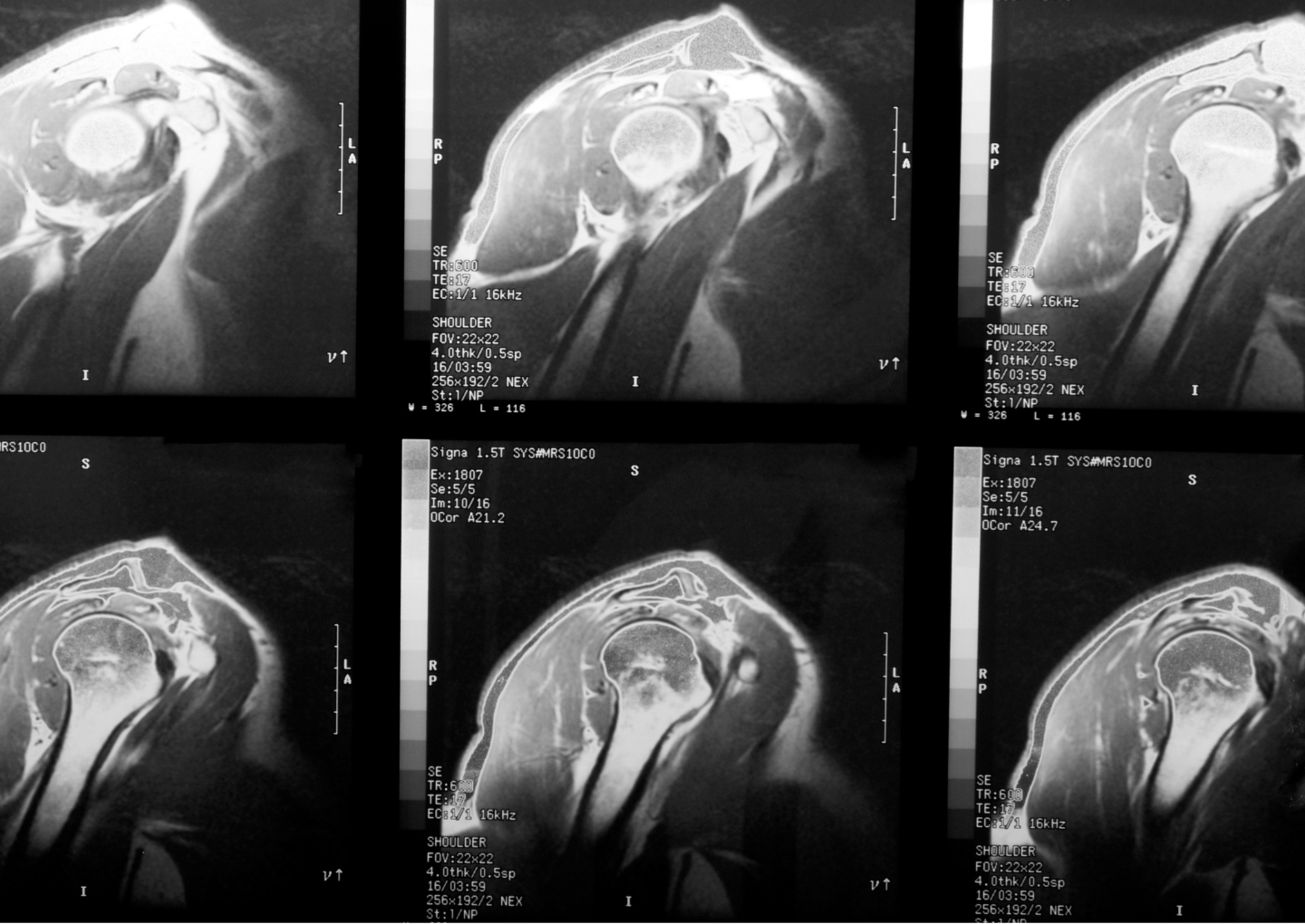Your Rotator Cuff - PART 1: Is Your Shoulder In Trouble?

The rotator cuff is a group of four muscles and tendons that surround the shoulder joint - like the crowd of vegetables in the fridge, keeping your chocolate out of sight.
These tendons help lift and rotate the arm, allowing for a wide range of movements, like reaching the lunchbox on the top shelf and hurling your slipper at the dog eating your dinner. When these muscles or tendons are injured, it can cause persistent pain and give the dog an upper hand.
What your shoulder looks like: The shoulder is made up of three bones: the humer(o)us (upper arm), scapula (shoulder blade), and clavicle (collarbone). The rotator cuff muscles and tendons work together to hold the ball of the upper arm into the shallow socket of the shoulder blade, allowing smooth hurling.
Common Rotator Cuff Injuries
- Tears: A rotator cuff tear can be partial or full-thickness. A partial tear means the tendon is damaged but still intact, while a full-thickness tear results in the tendon being completely torn, often requiring surgical repair — no joke.
- Tendinitis: Inflammation of the rotator cuff tendons, usually due to too much slipper hurling, causing pain and restricted movement.
- Impingement: This happens when the rotator cuff tendons get pinched between the shoulder blade and the humeral head, leading to pain, particularly during top shelf manoeuvres.
- Bursitis: Inflammation of the bursa (a small fluid-filled sac that reduces friction) in the shoulder joint can lead to painful, swollen shoulders.
Causes of a Rotator Cuff Injury
Rotator cuff injuries can stem from a few things:
- Overuse: Repetitive overhead movements, often seen in sports like forgot the keys or think fast, or occupations involving heavy car seats or fort building.
- Age-Related Degeneration: As we age, the tendons can weaken, making them more susceptible to tears and losing in those arm wrestles.
- Trauma or Injury: A sudden fall or impact to the shoulder can result in a tear or strain — the kids are a bit bigger than they once were…
- Poor Posture: Bad posture, especially while slumped in front of the tele or working, can lead to uneven strain on the shoulder muscles.
Symptoms of Rotator Cuff Injuries
Common symptoms include:
- Pain: Pain is a given, typically felt in the shoulder and can worsen at night or during overhead movements.
- Weakness: Difficulty lifting the arm, reaching overhead, or performing even the most tame tosses.
- Limited Range of Motion: Stiffness or a feeling of “catching” when moving the arm — “something doesn’t feel right…”
To sum it up
Recognising these symptoms early is pretty crucial for effective treatment and recovery. If you experience shoulder pain or weakness, it’s important to consult with a healthcare provider for an accurate diagnosis — it may be a blip but best to make sure, so the dog doesn’t eat your dinner whilst you’re out of action.
In tomorrow’s post, we’ll dive into how you go about diagnosing rotator cuff injuries and what you can expect from the recovery process.
